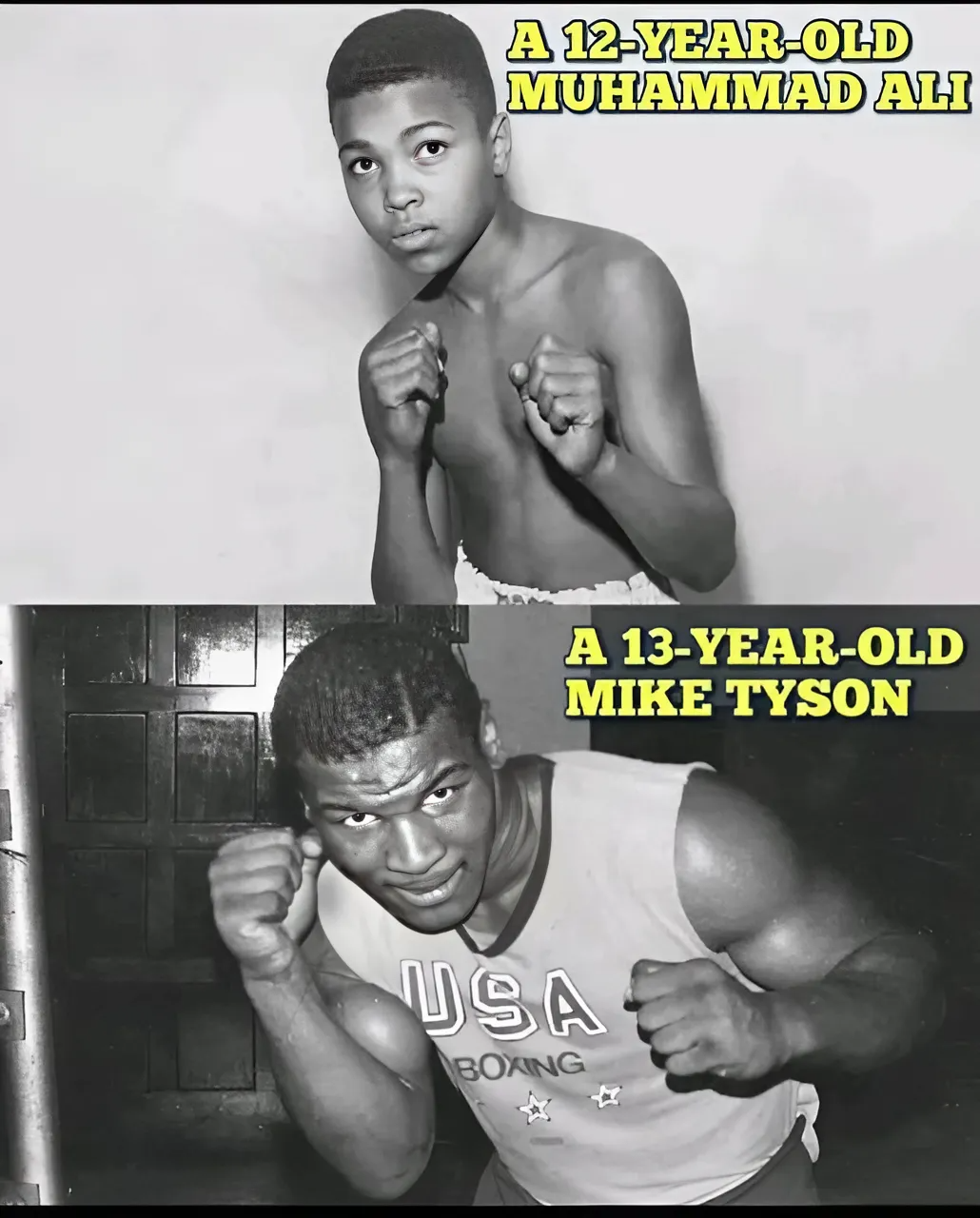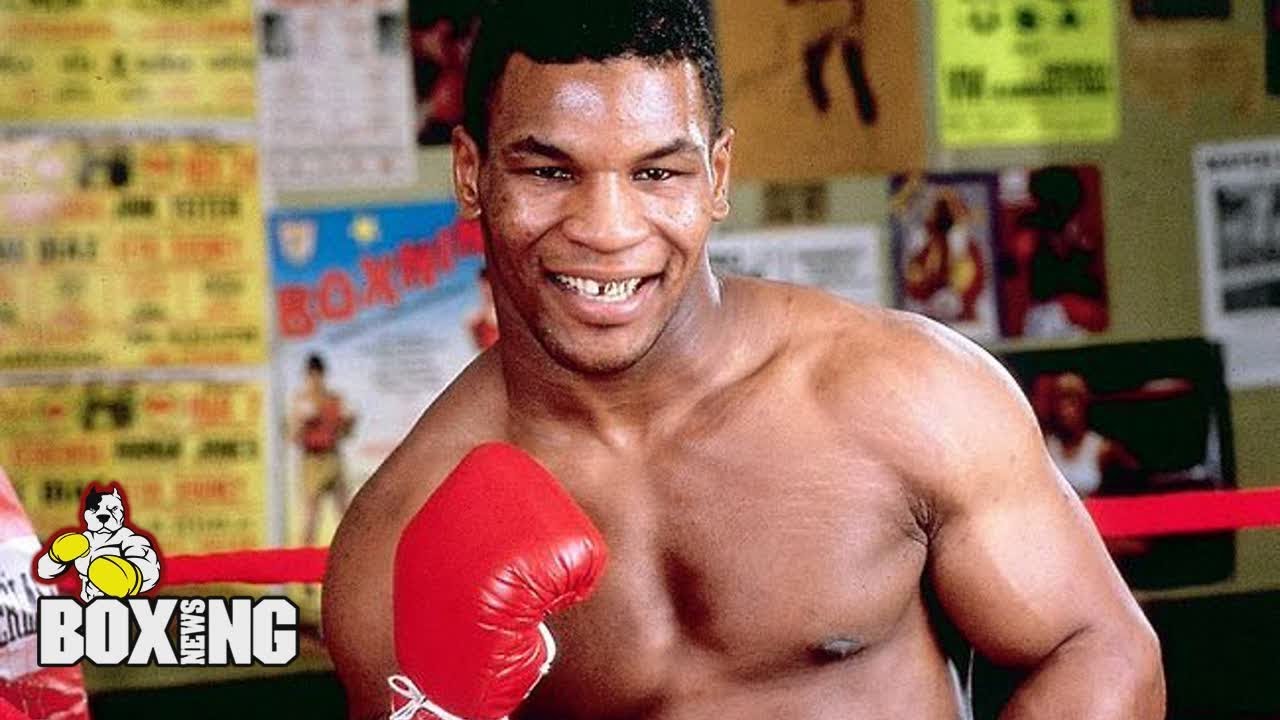
Title: Muhammad Ali at 12 and Mike Tyson at 13: Legends in the Making
In the world of boxing, few names carry the weight and legacy of Muhammad Ali and Mike Tyson. Both icons began their journeys at a young age, displaying the talent and determination that would later define their legendary careers. Reflecting on their early years, it’s evident that their paths were marked by dedication and an unwavering drive to succeed.
Muhammad Ali, born Cassius Clay, was introduced to boxing at the age of 12. His story began in Louisville, Kentucky, after his bicycle was stolen. Enraged and determined to confront the thief, young Clay met police officer Joe Martin, who also ran a boxing gym. Martin suggested that Clay learn how to box before seeking retribution, a piece of advice that would change the course of his life. Under Martin’s guidance, Ali quickly rose through the amateur ranks, showcasing his remarkable speed, agility, and charisma.
By the age of 18, Ali had already made a name for himself by winning a gold medal in the light heavyweight division at the 1960 Rome Olympics. His unique style, characterized by his quick footwork and sharp jabs, set him apart from his peers. Ali’s confidence and eloquence outside the ring further solidified his status as a rising star in the boxing world.
Meanwhile, Mike Tyson’s introduction to boxing came at the age of 13, under vastly different circumstances. Growing up in the tough neighborhoods of Brooklyn, New York, Tyson’s early life was marred by poverty and crime. His natural aggression and frequent run-ins with the law landed him in the Tryon School for Boys, a reform school where his boxing potential was discovered by counselor Bobby Stewart. Recognizing Tyson’s raw power and potential, Stewart introduced him to the legendary trainer Cus D’Amato.
D’Amato saw greatness in the young Tyson and took him under his wing, providing not just training but also a stable home environment. Under D’Amato’s mentorship, Tyson honed his ferocious style, characterized by his devastating power and relentless aggression. By the age of 15, Tyson had won gold medals at the 1981 and 1982 Junior Olympic Games, knocking out opponents with astonishing speed and efficiency.
Both Ali and Tyson’s early years were marked by their exceptional talents and the guidance of influential mentors who recognized and nurtured their potential. Ali’s path was one of skillful finesse and charismatic showmanship, while Tyson’s journey was fueled by raw power and an indomitable will to conquer his circumstances.
As they transitioned into their professional careers, both fighters left indelible marks on the sport. Ali became a global icon, known for his epic battles, humanitarian efforts, and his unwavering stance on social issues. Tyson, on the other hand, became the youngest heavyweight champion in history at the age of 20, known for his fearsome knockouts and dominant reign in the late 1980s.
Reflecting on their beginnings at ages 12 and 13, it’s clear that Muhammad Ali and Mike Tyson were destined for greatness. Their stories serve as powerful reminders of how passion, talent, and the right guidance can transform young prospects into legendary figures. Their legacies continue to inspire and influence the world of boxing and beyond, proving that true greatness often begins at a young age.





